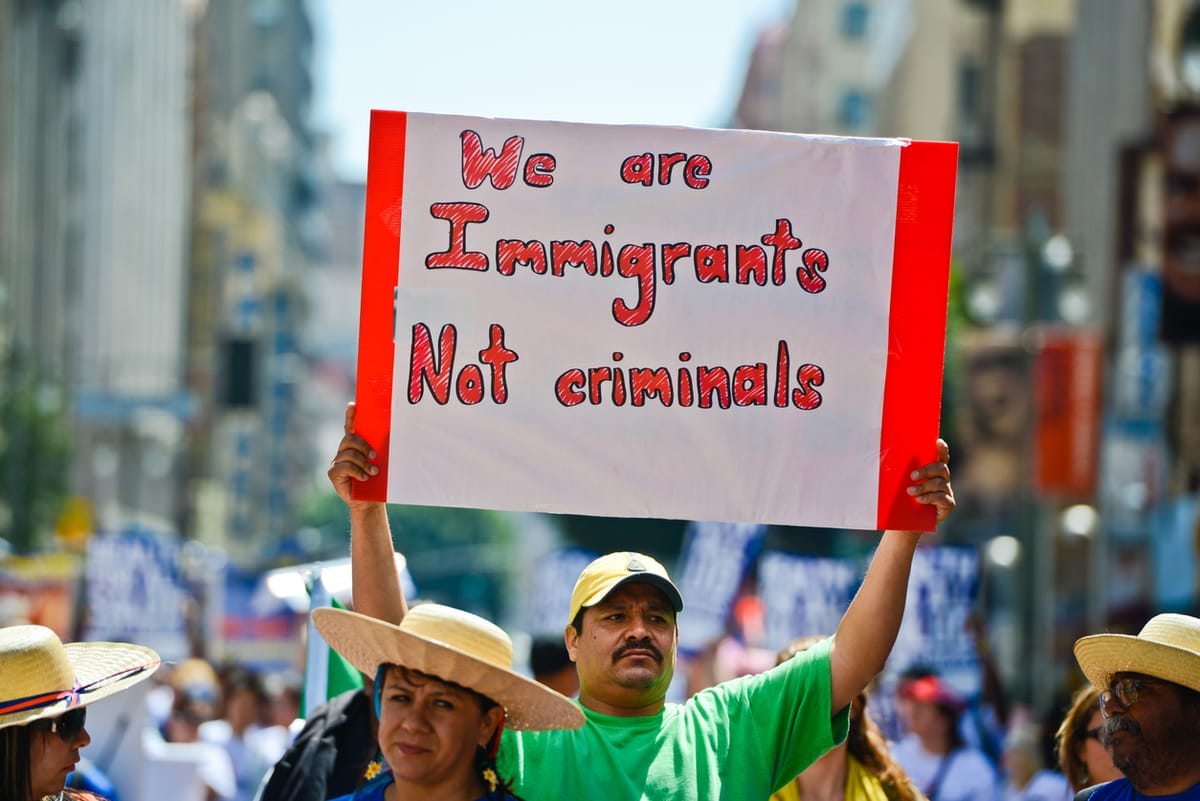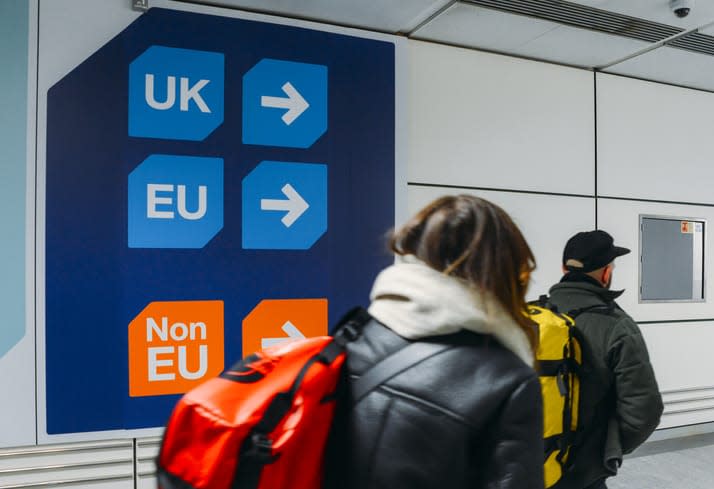
Around the world, including in Australia, leaders have expressed horror and revulsion at the mass shooting of Muslim worshippers in New Zealand by a white nationalist terrorist.
More than one million Australians signed a petition calling for independent Senator Fraser Anning to be sacked from Parliament, after he blamed fears surrounding Muslim immigration for the attack. But can the shooter’s actions, or Senator Anning’s hateful remarks, be seen in isolation?
Liberal Senator Linda Reynolds was asked on ABC-TV this week whether Australia’s media and politicians had themselves stoked this fear of immigrants over the past decade. She was particularly asked about her party’s vehement opposition to the recent medevac bill, designed to expedite medical evacuations for indefinitely detained asylum seekers on Nauru and Manus Island, many of whom are suffering from poor physical and mental health.
Senator Reynolds said the successful passage of the medevac bill made her “almost physically ill”, because she had been on Bali during the Bali terror attacks. Many of the detainees on Nauru and Manus are Muslim, and Bali is part of the world’s largest Muslim-majority country.
Despite suggesting this link between Islam and terrorism, Senator Reynolds also denied that her party had deliberately stoked anti-Muslim sentiment for political advantage – now, or in the past.

Such issues of migration, diversity, and surrounding politics and public perceptions are of interest to a growing community of migration researchers at Monash University – especially with the recent establishment of the School of Social Sciences’ Migration and Inclusion Centre under the directorship of Rebecca Wickes, alongside head of school Dharma Arunachalam.
“In recent political events and public discourse we’ve seen a breakdown in the factual basis of reporting on international migration,” says Monash human geographer Dr Alan Gamlen, a member of the new centre.
A New Zealander, Dr Gamlen has lived in Christchurch and has close family and friends there, and echoes the shock, grief and outrage at the attacks.
Dr Gamlen is also a longstanding migration researcher, and the editor of the academic journal Migration Studies, published by Oxford University Press. He observes anti-immigration sentiment is rising throughout the West, and that politicians of all stripes have stoked alarmist fears by not telling the truth.
“The Brexit vote in the UK was driven largely by scaremongering around migration,” he says. “The election of Donald Trump in the US, which everyone is also still struggling to understand, was also in large part driven by ‘alternative facts’ about migrants.”
Overturning the status quo
Dr Gamlen notes that, after the scapegoating of ethnic minorities that occurred in and around WWII, for many decades it was off-limits for liberal democratic politicians to “play the immigration card”. But a new cohort of populist-nationalists politicians is seeking to overturn the liberal status quo by putting that card back on the table.
Their efforts are bound with security fears of Muslims post-9/11, with economic fears about the presence of millions of illegal Latino immigrants in the US, and with unease at the influx of Eastern European job-seekers in Britain. These fears are amplified as hate speech and post-truth reporting spread through social media.
“Politicians recently seem to have redefined the rules, and said, ‘OK, xenophobia is a winning strategy’,” Dr Gamlen says. “When times are tough, it’s easy and, unfortunately, effective to point the finger at people who look different, or speak differently, or have different cultural practices.”
Yet migration also contributes to Australia’s prosperity. It’s helped provide greater economic opportunities to unprecedented numbers of people from Asia, Latin America, Africa, Europe and the Middle East. It’s also responsible for extraordinary levels of cultural exchange and fellowship, expressed in a multitude of commonplace encounters. In this country, migrants have redefined what it means to be Australian, particularly in the cities.
In last year’s Victorian state election, the Liberal-National opposition campaigned on law and order, emphasising the criminal threat posed by so-called “African Gangs”, even as Victorian police denied the existence of such gangs. The strategy proved to be an exploding cigar, with the Andrews Labor government winning in a landslide.
“Victoria may be exceptional in this respect,” says Dr Gamlen.
Truly multicultural?
Melbourne is celebrated as one of the world’s most liveable cities, and is also one of the most diverse. Last year, in partnership with Settlement Services International and a range of local government organisations, Dr Gamlen co-organised the inaugural Liveable Diversity Summit, bringing together 300 leaders from the multicultural sector, non-government organisations and policymakers, as well as delegates from the International Metropolis Conference, to explore the Victorian phenomenon. How was our vaunted multicultural experiment working on the ground? Was it real or a myth?
The event included a bus tour to five locations around the state, looking at how stakeholders in the regions (Ballarat and surrounding towns) and local government areas (Hume and Dandenong) handled the challenges posed by migrants and refugees.
It also included a stop at Monash’s Clayton campus to meet the Monash Intercultural Lab (directed by the Faculty of Arts’ deputy dean, Professor Rita Wilson), and preview new data visualisations of urban diversity that Monash human geographers are developing in partnership with the Max Planck Society in Germany and the Monash Immersive Visualisation Platform. The tour ended with a high-level summit at the Immigration Museum in Flinders Street.
Delegates at this series of events discovered that multiculturalism was supported both at the grassroots and the highest levels of government in Victoria. They saw how practical support for migrants was offered in schools, hospitals, museums, galleries and public spaces, and was also reflected in community policing practices and local government services.
“We found many examples of good practice here in Victoria,” Dr Gamlen says. “This really vibrant ecosystem of the settlement sector, as it’s sometimes called. Everybody in that ecosystem is confronted with issues of migration and diversity on a daily basis, and they’ve developed very fine-tuned tools and responses. Multiculturalism is institutionalised in the state here; it’s not a political position so much as a state policy.”
“Politicians recently seem to have redefined the rules, and said, ‘OK, xenophobia is a winning strategy’.”
But Victoria is also imperfect. “The flipside is – and we really saw this, too – we certainly are not getting everything right,” Dr Gamlen says. Overt racism – in every form, from the casual derogatory remark to the threat of violence – continues on streets and in playgrounds here, as was identified by a number of prominent participants in the events.
That contradiction is “still is a mystery to me as a relatively recent arrival in Australia, a real puzzle that I’m trying to work out”, Dr Gamlen says. “It is really enriching be part of a team of migration scholars here at Monash with a better grasp of the local context.”
Throughout the West, the politics of migration is not only dividing societies, but also threatening traditional political party structures, Dr Gamlen notes. In Britain for instance, there are MPs on both sides who want to remain in the European Union, and are deeply dissatisfied with Prime Minister Teresa May, and also with Labor leader Jeremy Corbyn, a Eurosceptic. Meanwhile, in the US, the Republicans have abandoned long-held principles to back their xenophobic president.

“Migration is becoming the scapegoat for the full range of issues surrounding globalisation,” Dr Gamlen says. “Try to tell someone that free trade or technology transfer has somehow taken away their job, and it’s very abstract to them – especially when the most obvious effect is cheaper products in local stores.
“It’s similar with global finance – who knows what a collateralised debt obligation really is? It’s hard to consciously get angry at such an abstract thing, even if it did help crash the global economy.
“But if you say that the arrival of people from different places is a fearsome result of globalisation, people can understand that viscerally. When another human being is different and unfamiliar, it can be frightening, particularly if we’re already feeling insecure because global trade took away our job, or global finance broke the bank. Migration is a very convenient scapegoat. It’s a very simple story to tell.”
“Migration is becoming the scapegoat for the full range of issues surrounding globalisation.”
Dr Gamlen is working on a project under the working title “Post-truth migration politics”, with Canadian-British author Dr Chris Kutarna, who predicted the outcome of the Brexit referendum and the election of Donald Trump, but is also an optimist. His best-selling book, Age of Discovery: Navigating the storms of our second Renaissance, outlined how the level of technological and scientific discoveries in the present era had the potential to transform our way of life. He’s similarly upbeat about the benefits of migration.
“You hear serious thinkers talking about a new dark age, and when something like the white nationalist terrorism in Christchurch happens, it’s not hard to believe them and to despair,” says Dr Gamlen.
“But, one of the things I like about working with Chris is that he’s chosen to take this view that if we can navigate our way through all the storms and changes going on – and if we can firmly reject the backward thinking that leads to fear and violence – it’s still somehow within our grasp to turn this turbulent period into a new Renaissance. After Christchurch, it’s really a duty on all of us here in this part of the world to figure out how to do that.”





